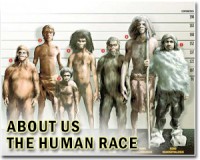 |
London, UK (SPX) Feb 02, 2011 Spreading fear about the planet's diminishing resources serves only to keep poor people poor and enrich those already wealthy, according to leading thinkers who today attack the widespread belief that the world is running out of resources. They challenge the assumption in a new book, The Limits to Scarcity: Contesting the politics of allocation (Earthscan 2011), which is published as Sir John Beddington, the UK Government's Chief Scientific Adviser, raises fears about water and food shortages in a recently released report. It also comes as world leaders prepare to convene this week at the World Economic Forum in Davos, Switzerland, with an agenda that takes as a given that the earth is running out of water, oil and other resources. The Limits to Scarcity argues that the conventional and widespread opinion that people must compete for ever-decreasing food, water and energy is based on a false assumption - that needs and wants are unlimited and the means to achieve them are scarce. This though is the basic premise of modern economics and it has led, say the authors, to political strategies which: + Justify controversial interventions such as nuclear energy and biotechnology; + Perpetuate vested interests; + Keep poor people poor. Dr Lyla Mehta, a Research Fellow at the Institute of Development Studies (IDS) and editor of The Limits to Scarcity, says: 'Scarcity is never global or universal, even in the case of oil. It is far more usually quite local or regional. There is, for instance, more than enough food and water to go around. 'The big question is, who allocates it and on what basis. By understanding scarcity as an inbuilt characteristic of resources, the failure of societies to provide for the needs of the poor and powerless is made out to be "natural" and "nature's" fault. 'World leaders would do more for the poor by addressing the fundamental issues of resource allocation, access, entitlement and social justice, rather than drawing on simplistic universalising notions of scarcity.' Using case studies from sub-Saharan Africa, India, Nepal and the United States among others, the contributors to The Limits to Scarcity argue that markets respond to the buying power of the wealthy, with goods flowing to those who can afford them. It shows, for example, how promoting arguments about scarcity has led to: + A one-size fits all approach to tackling soil-nutrient deficiency in Africa which has benefited the fertiliser industry but ignored local needs; + A small group of vested interests growing rich from road construction contracts in Nepal, a country where ropeways are the locally preferred and more suitable option; + Policymakers in India legitimising large-scale projects which leave the most marginalised people without access to new water sources; + The US energy policy in the George Bush era which legitimised the 'American Way of Life' and the expansion of US interests in the Middle East. While not denying that humanity can be a burden on the planet, the books demonstrates that a fixation with debates around overpopulation and depleting resources ignores focusing attention on critical issues such as power relations, unequal gender relations, caste and ethnic discrimination. Dr Mehta says: 'What emerges from all the pieces in the book is the near-consensus that detailed sociological and political attention to what is actually happening on the ground has almost always located the causes of hunger or water shortage not in an absolute scarcity but in socially-generated scarcity arising from imbalances of power that deny people access to food and water'. 'We need new politics and imaginative thinking to overcome the financial and environmental crises affecting millions on the globe. Debunking scarcity myths is one place to start.'
Share This Article With Planet Earth
Related Links Earthscan All About Human Beings and How We Got To Be Here
 Brains 'rank' memories as we sleep
Brains 'rank' memories as we sleepTubingen, Germany (UPI) Feb 1, 2011 Human brains store memories during sleep, and specifically preserve memories identified as important during waking hours, German researchers say. Researchers at the University of Tubingen conducted a study in which 191 adults performed memory tasks like memorizing word-pairs. Half the group was then told it would be re-tested on that task 9 hours later, while the other half was told to ... read more |
|
| The content herein, unless otherwise known to be public domain, are Copyright 1995-2010 - SpaceDaily. AFP and UPI Wire Stories are copyright Agence France-Presse and United Press International. ESA Portal Reports are copyright European Space Agency. All NASA sourced material is public domain. Additional copyrights may apply in whole or part to other bona fide parties. Advertising does not imply endorsement,agreement or approval of any opinions, statements or information provided by SpaceDaily on any Web page published or hosted by SpaceDaily. Privacy Statement |